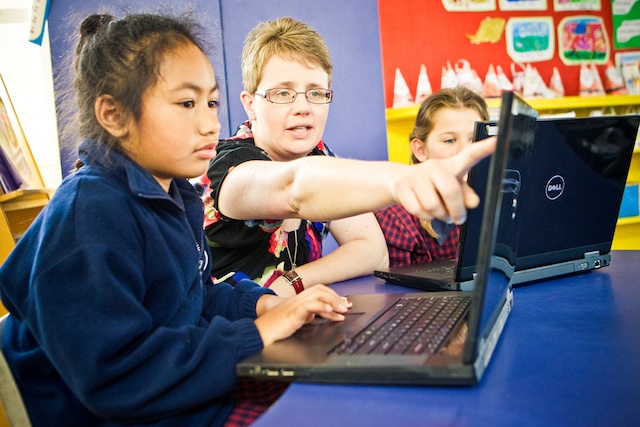Tula‘i Mai! Making a difference to Pasifika student achievement in literacy
Welcome to The New Zealand Curriculum Update
Curriculum Updates support school leaders and teachers as they work to design and review their school curriculum in line with the New Zealand Curriculum and with current knowledge and understandings about effective classroom teaching.
Curriculum Updates are published in the Education Gazette and are available online.
This Update shares messages from research about classroom practices that make a difference to Pasifika student achievement in literacy. The full report and a summary are to be made available on the Education Counts website.
The Literacy Professional Development Project (LPDP) provided professional development nationwide from 2004 to 2010. Its goal was to improve literacy outcomes for all students in participating schools while reducing disparity between the highest and lowest achievers.
The project had considerable success. On average, students in LPDP schools made double the expected national rate of progress, with the greatest shifts occurring for those who began in the lowest 20 percent of their cohort. These students achieved up to six times the expected rate.
Although the project was not specifically targeted at Pasifika students, the achievement data for the second cohort (2006–2007) showed that, on average, Pasifika students made more rapid progress than any other ethnic group in both reading and writing. The LPDP Pasifika Study was established to investigate the reasons why.
The Pasifika Study was led by the LPDP’s two “embedded” researchers, professors Judy Parr
and Helen Timperley. Information was collected from ten schools with Pasifika student populations of between 24 percent and 80 percent. As well as including interviews, questionnaires, and observations, the study closely examined the learning journey of twenty teachers and twenty literacy leaders.
This Update focuses primarily on classroom practices associated with improved outcomes for Pasifika students. It highlights the value of explicit language and vocabulary teaching, effective relationships and interactions, and building on students’ languages, cultures, and identities. The Update also presents some of the study’s findings about effective school leadership.

